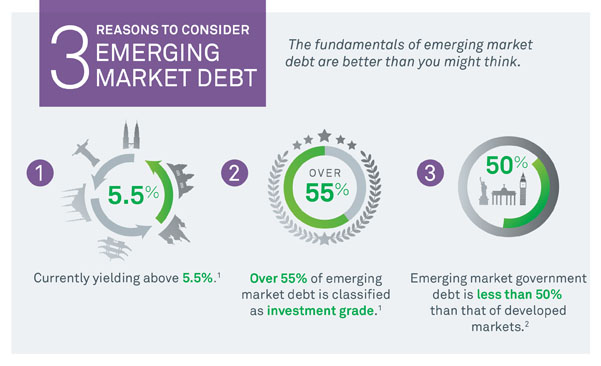
In this article, we'll discuss what the Rec. We'll also discuss the Ex-dividend date and the Rec. date, as well the Company name. Once you have these details figured out, you can proceed to the Company name. If you have any questions, you can reach the company directly. You should ensure you're correct addressing the company. It is also important to know the name and title of the Company's president and board of directors.
Ex-dividend date
Dividends are paid out to shareholders on certain dates based on the company's record date. These dates will be set by Securities and Exchange Commission. Ex-dividend is two business day prior to the record. The ex-dividend day determines when an ordinary shareholder can be eligible for a dividend.

The day preceding the record date to receive the dividend payment on the stock is the ex–dividend. An example: A security that was purchased on Tuesday will settle Thursday. The person who bought stock on Tuesday will become a shareholder and be eligible to receive the dividend. Cum dividends is this process. These are the three ways ex-dividend dates can affect your dividend payments.
Rec. Date
REC Ltd. has an Ex. date on its dividend payments. This is the day that the annual general assembly holds. The declared dividend is less than the share price. If a shareholder does not sell their shares by this date, they will still receive the dividend payment. The stock becomes ex-dividend stock after that date. Any new owners of the stock will lose their entitlement to receive dividends.
Another important date is the Record date. In most cases, the board of directors sets this date. This is the date that a shareholder is added to the company's share registry. Rec. date is the day of the annual general meeting, but the date can be different in other countries. The Rec. Date is calculated at the annual general meetings. Investors can thus determine whether they are eligible to receive dividends at any given point in time.
Name of company
Important dates to be aware of are the Company's name, and the dividend rec date. The date at which dividends are paid to shareholders is known as the dividend payment date. These payments could be deposited to the shareholders' brokerage account or checking account. Or they may arrive by registered mail. Before a dividend is paid, the shareholder's name must be on the record book. If the shareholder's information is not in the record book, no dividend will be paid.

The record date is when the company's board announces the dividend. This is important because it indicates when the dividends will be paid out. Dividend payout dates don't depend on the record, but the final list. The Company's name and dividend rec date are two different dates, which must be interpreted correctly. Additionally, the record date indicates the date when the stock price was recorded to be higher or lower that the company's closing prices on the date of declaration.
FAQ
How do I choose an investment company that is good?
You want one that has competitive fees, good management, and a broad portfolio. Fees are typically charged based on the type of security held in your account. Some companies have no charges for holding cash. Others charge a flat fee each year, regardless how much you deposit. Others may charge a percentage or your entire assets.
You should also find out what kind of performance history they have. Companies with poor performance records might not be right for you. Avoid low net asset value and volatile NAV companies.
It is also important to examine their investment philosophy. To achieve higher returns, an investment firm should be willing and able to take risks. If they are unwilling to do so, then they may not be able to meet your expectations.
How does Inflation affect the Stock Market?
Inflation is a factor that affects the stock market. Investors need to pay less annually for goods and services. As prices rise, stocks fall. Stocks fall as a result.
Who can trade in the stock market?
Everyone. Not all people are created equal. Some have greater skills and knowledge than others. So they should be rewarded for their efforts.
Other factors also play a role in whether or not someone is successful at trading stocks. If you don’t know the basics of financial reporting, you will not be able to make decisions based on them.
So you need to learn how to read these reports. You must understand what each number represents. It is important to be able correctly interpret numbers.
You will be able spot trends and patterns within the data. This will enable you to make informed decisions about when to purchase and sell shares.
If you're lucky enough you might be able make a living doing this.
What is the working of the stock market?
When you buy a share of stock, you are buying ownership rights to part of the company. A shareholder has certain rights over the company. He/she may vote on major policies or resolutions. He/she has the right to demand payment for any damages done by the company. He/she can also sue the firm for breach of contract.
A company cannot issue more shares than its total assets minus liabilities. It is known as capital adequacy.
A company with a high ratio of capital adequacy is considered safe. Low ratios make it risky to invest in.
What is the trading of securities?
The stock exchange is a place where investors can buy shares of companies in return for money. Investors can purchase shares of companies to raise capital. Investors can then sell these shares back at the company if they feel the company is worth something.
The price at which stocks trade on the open market is determined by supply and demand. The price rises if there is less demand than buyers. If there are more buyers than seller, the prices fall.
There are two options for trading stocks.
-
Directly from the company
-
Through a broker
Are bonds tradeable
Yes they are. They can be traded on the same exchanges as shares. They have been trading on exchanges for years.
The only difference is that you can not buy a bond directly at an issuer. You will need to go through a broker to purchase them.
This makes buying bonds easier because there are fewer intermediaries involved. This means that you will have to find someone who is willing to buy your bond.
There are many kinds of bonds. While some bonds pay interest at regular intervals, others do not.
Some pay interest quarterly while others pay an annual rate. These differences allow bonds to be easily compared.
Bonds are very useful when investing money. In other words, PS10,000 could be invested in a savings account to earn 0.75% annually. You would earn 12.5% per annum if you put the same amount into a 10-year government bond.
If you were to put all of these investments into a portfolio, then the total return over ten years would be higher using the bond investment.
Statistics
- "If all of your money's in one stock, you could potentially lose 50% of it overnight," Moore says. (nerdwallet.com)
- Our focus on Main Street investors reflects the fact that American households own $38 trillion worth of equities, more than 59 percent of the U.S. equity market either directly or indirectly through mutual funds, retirement accounts, and other investments. (sec.gov)
- For instance, an individual or entity that owns 100,000 shares of a company with one million outstanding shares would have a 10% ownership stake. (investopedia.com)
- US resident who opens a new IBKR Pro individual or joint account receives a 0.25% rate reduction on margin loans. (nerdwallet.com)
External Links
How To
How to trade in the Stock Market
Stock trading involves the purchase and sale of stocks, bonds, commodities or currencies as well as derivatives. The word "trading" comes from the French term traiteur (someone who buys and sells). Traders trade securities to make money. They do this by buying and selling them. It is one of the oldest forms of financial investment.
There are many methods to invest in stock markets. There are three main types of investing: active, passive, and hybrid. Passive investors only watch their investments grow. Actively traded investors seek out winning companies and make money from them. Hybrid investors combine both of these approaches.
Passive investing involves index funds that track broad indicators such as the Dow Jones Industrial Average and S&P 500. This method is popular as it offers diversification and minimizes risk. You just sit back and let your investments work for you.
Active investing is about picking specific companies to analyze their performance. The factors that active investors consider include earnings growth, return of equity, debt ratios and P/E ratios, cash flow, book values, dividend payout, management, share price history, and more. Then they decide whether to purchase shares in the company or not. If they feel that the company's value is low, they will buy shares hoping that it goes up. They will wait for the price of the stock to fall if they believe the company has too much value.
Hybrid investments combine elements of both passive as active investing. One example is that you may want to select a fund which tracks many stocks, but you also want the option to choose from several companies. This would mean that you would split your portfolio between a passively managed and active fund.